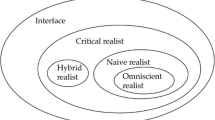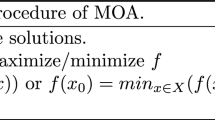Abstract
We consider a special case of heuristics, namely numeric heuristic evaluation functions, and their use in artificial intelligence search algorithms. The problems they are applied to fall into three general classes: single-agent path-finding problems, two-player games, and constraint-satisfaction problems. In a single-agent path-finding problem, such as the Fifteen Puzzle or the travelling salesman problem, a single agent searches for a shortest path from an initial state to a goal state. Two-player games, such as chess and checkers, involve an adversarial relationship between two players, each trying to win the game. In a constraint-satisfaction, problem, such as the 8-Queens problem, the task is to find a state that satisfies a set of constraints. All of these problems are computationally intensive, and heuristic evaluation functions are used to reduce the amount of computation required to solve them. In each case we explain the nature of the evaluation functions used, how they are used in search algorithms, and how they can be automatically learned or acquired.
Similar content being viewed by others
References
Hart, P.E., N.J. Nilsson, and B. Raphael (1968), ‘A formal basis for the heuristic determination of minimum cost paths’,IEEE Transactions on Systems Science and Cybernetics 4(2), pp. 100–107.
Korf, R.E. (1985), ‘Depth-first iterative-deepening: An optimal admissible tree search’,Artificial Intelligence 27(1), pp. 97–109.
Pearl, J. (1984),Heuristics, Addison-Wesley, Reading, Ma.
Valtorta, M. (1984), ‘A result on the computational complexity of heuristic estimates for the A* algorithm’,Information Science 34, pp. 48–59.
Prieditis, A.E. (1993), ‘Machine discovery of effective admissible heuristics’,Machine Learning 12, pp. 117–141.
Korf, R.E. (1990), ‘Real-time heuristic search’,Artificial Intelligence,42(2–3), pp. 189–211.
Christensen, J. and R.E. Korf (1986), ‘A unified theory of heuristic evaluation functions and its application to learning’,Proceedings of the National Conference on Artificial Intelligence (AAAI-86), Philadelphia, Pa., pp. 148–152.
Samuel, A.L. (1963), ‘Some studies in machine learning using the game of checkers’, inComputers and Thought, Feigenbaum and Feldman, Eds., McGraw-Hill, N.Y., pp. 71–105.
Minton, S., M.D. Johnston, A.B. Philips, and P. Laird (1992), ‘Minimizing conflicts: A heuristic repair method for constraint satisfaction and scheduling problems’,Artificial Intelligence 58(1–3), pp. 161–205.
Author information
Authors and Affiliations
Rights and permissions
About this article
Cite this article
Korf, R.E. Heuristic evaluation functions in artificial intelligence search algorithms. Mind Mach 5, 489–498 (1995). https://doi.org/10.1007/BF00974979
Issue Date:
DOI: https://doi.org/10.1007/BF00974979




